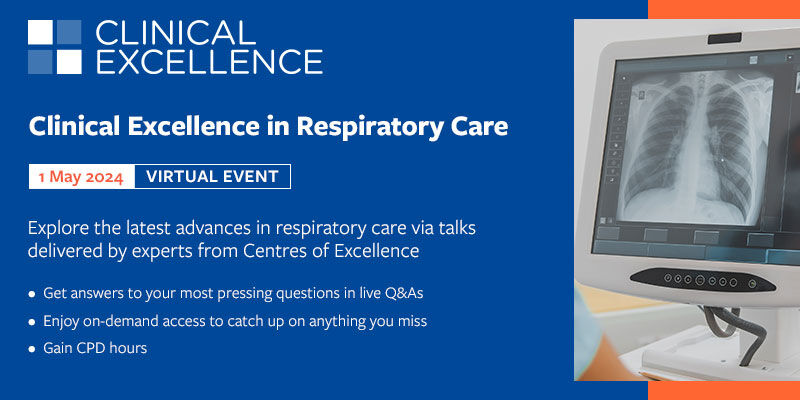The first-ever two-year outcomes from the Global Anticoagulant Registry in the Field – Atrial Fibrillation (GARFIELD-AF) showcased at ESC Congress 2015 expose that all-cause death was the most frequent major event in more than 17,000 newly diagnosed AF patients, far exceeding the rate of stroke or major bleeding.
These two-year prospective outcomes from cohorts 1 and 2 show a mortality rate of 3.83% per person year compared to stroke rates of 1.25% per person year and major bleeding rates of 0.70% per person year. (1)
Additional one-year outcomes from more than 28,000 AF patients in cohorts 1–3, demonstrate a likely impact of comorbidities on increasing mortality, stroke and major bleeding. Patients with moderate-to-severe chronic kidney disease and those with a history of myocardial infarction had a markedly higher mortality rate than the overall population (9.4% and 6.9% respectively, compared to 4.0%). (1)
“These data from the GARFIELD-AF registry indicate the importance of comorbidities in predicting patient outcomes and can offer physicians guidance in managing AF,” said Professor Sam Goldhaber of Harvard Medical School and the Brigham and Women’s Hospital. “The results suggest physicians should consider increasing the prescription of anticoagulants in AF patients with these comorbidities.”
Insights from nearly 40,000 patients with AF across the four sequential GARFIELD-AF cohorts from 2010 to 2015 show a shift in how AF is being managed across the globe. Overall, patients initiated on anticoagulant treatment for stroke prevention increased from 57.4% to 71.1%. Use of vitamin K antagonists (VKAs) and antiplatelets (combined or alone) fell from 83.4% to 50.6%, whilst use of non-vitamin K antagonist oral anticoagulants (NOACs) with or without an antiplatelet increased from 4.1% to 37.0%. (1) “This evolution in treatment patterns is consistent with the adoption of innovative therapies for stroke prevention,” said Professor Ajay Kakkar, Professor of Surgery at University College London and Director of the Thrombosis Research Institute. “The remaining challenge, however, is to ensure that the correct patient receives the appropriate therapy.”
Professor John Camm of St George’s University, London expanded on the treatment patterns revealed in GARFIELD-AF: “While we are seeing an overall increase in the use of appropriate anticoagulation therapy, GARFIELD-AF reveals a substantial variation in NOAC uptake between countries. Analysis in over 20,000 newly diagnosed AF patients across Europe from cohorts 1-3 showed these variations ranged from 2.6% to 58.0%. (2) The ongoing insights being gathered across countries and different care settings will help clinicians better understand how to improve care and outcomes for AF patients.”
GARFIELD-AF is the largest ongoing prospective registry of patients with newly diagnosed AF and at least one additional stroke risk factor. The ongoing real-world insights continuing to be gathered from the GARFIELD-AF Registry are being converted into real-world evidence that help inform and identify areas where the medical community can continue to improve patient outcomes.
Additionally GARFIELD-AF data in specific regions and patient populations were presented at ESC Congress 2015:
Vitamin K antagonist control in Eastern and Southeastern Asia (3)
GARFIELD-AF insights show fewer INR readings, longer intervals between readings and lower INR values in Eastern and Southeastern Asia (n=3,627) compared to countries in other regions of the world (n=13,546). For patients receiving VKAs for newly diagnosed AF in Eastern and Southeastern Asia, results showed:

- Lower INR levels with the majority 2.0, a trend that was seen across all age groups
- Use of anticoagulation in patients with a CHA2DS2-VASc score of ≥2 was lower
Stroke, major bleeding and mortality in newly diagnosed atrial fibrillation with moderate-to-severe chronic kidney disease: results from GARFIELD-AF (4)
One-year outcomes in 17,159 patients with AF reveal differences between patients with moderate-to-severe chronic kidney disease (n=1,760) and those with no or mild chronic kidney disease (n=15,399):
- Moderate-to-severe chronic kidney disease is associated with a two-fold higher rate of mortality and major bleeding, and a 1.4-fold higher rate of stroke
- Use of anticoagulants was more frequent in patients with moderate-to-severe chronic kidney disease
- Further interrogation of mortality and bleeding event rates in the ongoing GARFIELD-AF registry may provide greater insight into balancing the benefits and risks of anticoagulant therapy for patients with AF and chronic kidney disease
About the GARFIELD-AF Registry
GARFIELD-AF is an independent academic research initiative, led by an international steering committee under the auspices of the Thrombosis Research Institute (TRI), London, United Kingdom.
It is an international observational, multicentre study of patients with newly diagnosed AF. It will follow 57,000 patients from at least 1000 centres in 35 countries in the Americas, Eastern and Western Europe, Asia, Africa and Australia. Nearly 45,000 patients were recruited in four sequential cohorts between December 2009 and July 2015. The fifth and final cohort began recruiting at the beginning of August 2015.
Contemporary understanding of AF is based on data gathered in controlled clinical trials. Whilst essential for evaluating the efficacy and safety of new treatments, these trials may not be representative of everyday clinical practice and, hence, uncertainty persists about the real-life burden and management of this disease. GARFIELD-AF seeks to provide insights into the impact of anticoagulant therapy on thromboembolic and bleeding complications seen in this patient population. It will provide a better understanding of the potential opportunities for improving care and clinical outcomes amongst a representative and diverse group of patients and across distinctive populations. This should help physicians and healthcare systems to appropriately adopt innovation to ensure the best outcomes for patients and populations.
The registry started in December 2009. Four key design features of the GARFIELD-AF protocol ensure a comprehensive and representative description of AF. These are:
- Five sequential cohorts of prospective, newly-diagnosed patients, facilitating comparisons of discrete time periods and describing the evolution of treatments and outcomes
- Investigator sites that are selected randomly within carefully assigned national AF care setting distributions, ensuring that the enrolled patient population is representative
- Enrolment of consecutive eligible patients regardless of therapy to eliminate potential selection bias
- Follow-up data captured for a minimum of two and up to eight years after diagnosis, to create a comprehensive database of treatment decisions and outcomes in everyday clinical practice
Included patients must have been diagnosed with non-valvular AF within the previous six weeks and have at least one additional risk factor for stroke; as such they are potential candidates for anticoagulant therapy to prevent blood clots leading to stroke. It is left to the investigator to identify a patient’s stroke risk factor(s), which need not be restricted to those included in established risk scores. Patients are included whether or not they receive anticoagulant therapy, so current and future treatment strategies and failures can be properly understood in relation to patients’ individual risk profiles.
The GARFIELD-AF Registry is funded by an unrestricted research grant from Bayer Pharma AG (Berlin, Germany).
References:
- Kakkar AJ. (2015, August). Anticoagulation and AF: real life data from the GARFIELD-AF registry. Symposium conducted at ESC Congress 2015, London, United Kingdom.
- Camm AJ et al. Patterns of uptake of non-vitamin K antagonist oral anticoagulants in Europe: an analysis from the GARFIELD-AF registry. Poster session presented at ESC Congress 2015, London, United Kingdom.
- Goto S et al. Vitamin K antagonist control in Eastern and Southeastern Asia. Oral session presented at ESC Congress 2015, London, United Kingdom.
- Goto S et al. Stroke, major bleeding and mortality in newly diagnosed atrial fibrillation with moderate-to-severe chronic kidney disease: Results from GARFIELD-AF. Poster session presented at ESC Congress 2015, London, United Kingdom.









